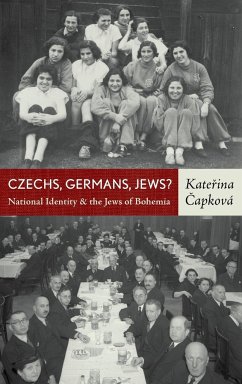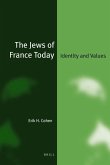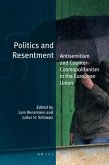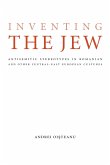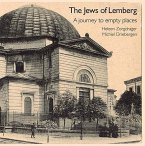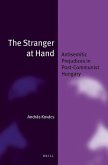"In her well-researched volume, Capkováuses a broad range of archival and published sources and shows a mastery of the secondary literature, including theoretical materials... Subtly argued and effectively based in the real-life experience of individuals, this book is a fine contribution to the study and understanding of central European Jewry. Fluidly translated; 20 well-chosen illustrations. Highly recommended." · Choice "A masterful examination of the dynamics of Jewish integration in-and into-interwar Czechoslovakia, complicated by the dilemma of competing national identifications. Katerina Capková skillfully interweaves the theoretical positions, social relations, and political conflicts involving the three main articulations of modern Jewish identity in this important region of Central Europe and traces their fortunes down to the dissolution of the Czechoslovak Republic under the impact of fascism...Simply put, it has no equal." · Hillel J. Kieval, Washington University in St. Louis "Capková's book is the first and so far the only comprehensive study on the history of the Jews in Bohemia in the era of the first Czechoslovak Republic. It is also the first systematic research on this topic in the post-communist era, which continues the broken tradition of Czech and German studies on Jewish history and culture in the Czech Lands, interrupted by the Nazi occupation and the communist domination of Czechoslovakia." · Otto Dov Kulka, The Hebrew University of Jerusalem The phenomenon of national identities, always a key issue in the modern history of Bohemian Jewry, was particularly complex because of the marginal differences that existed between the available choices. Considerable overlap was evident in the programs of the various national movements and it was possible to change one's national identity or even to opt for more than one such identity without necessarily experiencing any far-reaching consequences in everyday life. Based on many hitherto unknown archival sources from the Czech Republic, Israel and Austria, the author's research reveals the inner dynamic of each of the national movements and maps out the three most important constructions of national identity within Bohemian Jewry - the German-Jewish, the Czech-Jewish and the Zionist. This book provides a needed framework for understanding the rich history of German- and Czech-Jewish politics and culture in Bohemia and is a notable contribution to the historiography of Bohemian, Czechoslovak and central European Jewry. Katerina Capková is a research fellow at the Institute of Contemporary History, Prague, and teaches Modern Jewish History at Charles University and NYU in Prague. With Michal Frankl she is the co-author of Nejisté útociSte, a book about Czechoslovakia and refugees from Nazi Germany (2008, in German 2012).
Hinweis: Dieser Artikel kann nur an eine deutsche Lieferadresse ausgeliefert werden.
Hinweis: Dieser Artikel kann nur an eine deutsche Lieferadresse ausgeliefert werden.

